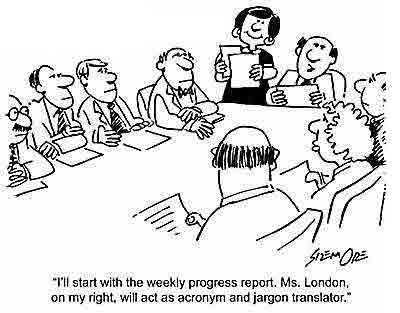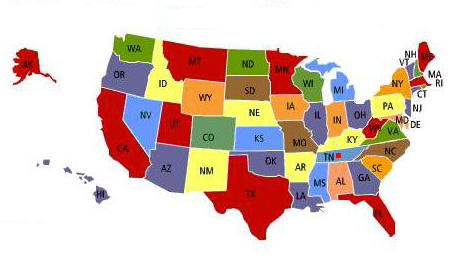5 Exceptions to the “Don’t Abbreviate on a Resume” Rule
By — — Posted in Job Search Tips, Resume Writing Tips
Generally speaking, yes, what you may have heard is true: it is NOT recommended to abbreviate on resumes.
There is a formality to them in many ways, some include middle names, we list out our oh so impressive credentials, and, well, job searching is serious business for both the applicant and the employer. We want to be taken seriously, and, communicate effectively. Thus, to ensure both, generally, it’s safest to spell things out.
I do believe there are a few exceptions, though, that no hiring manager is going to mind, be confused by, or hold against a candidate, and therefore, sometimes it just makes space saving sense to shorten your syntax. Here are the situations where I regularly feel comfortable using abbreviations on resumes:
1) Well known, universal business world abbreviations are safe: Commonly used abbreviations are fine, even expected to be used in business, for example: MS for Microsoft, HTML for hyper text markup language (in this case, the full version might confuse people, even!), $100K, the K meaning thousand, rather than writing $100,000, wpm (words per minute for keyboarding), VP as Vice President, and so on. Save the space in these circumstances!
2) “Alphabet soup” of academic credentials: B.A. for Bachelor of Arts, MBA, Master of Business Administration,, LMT Licensed Massage Therapist, and so on. If it’s a standard degree/certification overall, or in your field, it’s fine to abbreviate. If you are an LMT, for example,but applying for an unrelated position, I’d just leave it off the resume, or, if it’s listed somewhere for some reason, I’d abbreviate and then spell it out.
3) Months: (if you include them at all) I can’t remember the last time I included the months in the work history of a resume, but if you do, it’s okay to shorten “January 2001” to any of these: Jan. 2001, 1/01 or a combo thereof – just make sure the format you choose you use consistently for all dates.

4) States: States can be abbreviated with their PROPER, UPDATED, 2-LETTER format (ex: FL, not Fla.; IL, not Ill., etc….the 2 letter format was adopted earlier than I thought, when I googled, it says 1963, though the 3-letter versions are still floating around, as outdated as corded phones…) Here’s a list from the USPS for reference of the history of the codes and the proper, current ones.
5) Industry jargon/acronyms: PM might mean ‘after 12:00 noon & before 12:00 midnight, yes, but no one in the Project Management field will be confused if you use this standard abbreviation.
In fact, using the standard jargon & acronyms is expected, and shows you know what you’re talking about, you know the field. If a teacher wrote out individual education plan on their resume instead of IEP, it might signal inexperience, not formality used for resume purposes only, for example.
Professional organization names & that sort of thing are a judgement call. Some will be more well known than others. If you have room, in this instance, it’s safest to include both the acronym and the full title of the organizations.
This all said, don’t use “tho” instead of “though”, or “cuz” or “cos” for because these are slang , not abbreviations.
I also always spell out “Assistant” because of my mom’s faux pas in her first secretarial job…. she abbreviated her boss’ title as “Asst.” Vice President….except, she left off the “t”! Her good natured boss came to her & pointed to this & said, “Well, Beth, this may be true, I may be an a_$, but, I don’t think I want to announce it to the world in my business title. Can you please fix this?”, and smiled. She always remembers that one (as does he, I bet!)
And one final note…in this day and age of texting plz dnt use txt style 4 biz….evr! (I have no idea if that is standard ‘texting’ shorthand or not…but you (I hope) get the idea! ) (emoticons also a huge no-no in job search communications!) 😉
For more great resume and job search tips –
BUY THIS:
Click here to view more details

From Ask a Manager about this book: “If you’ve ever wished that you could look into the brain of a hiring manager to find out what you need to do to get hired, How to Get a Job: Secrets of a Hiring Manager is for you.
Written from my perspective as a long-time hiring manager, this e-book gives you step-by-step guidance through every stage of your job search … explaining at each step what a hiring manager is thinking and what they want to see from you …”

